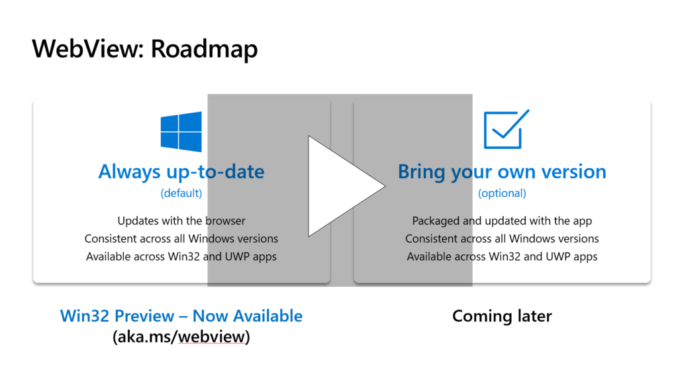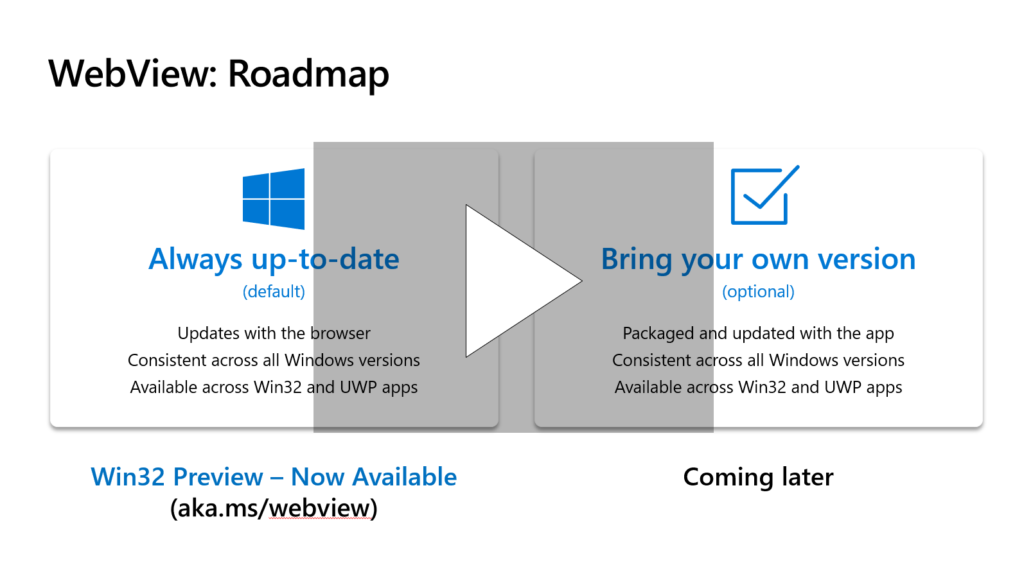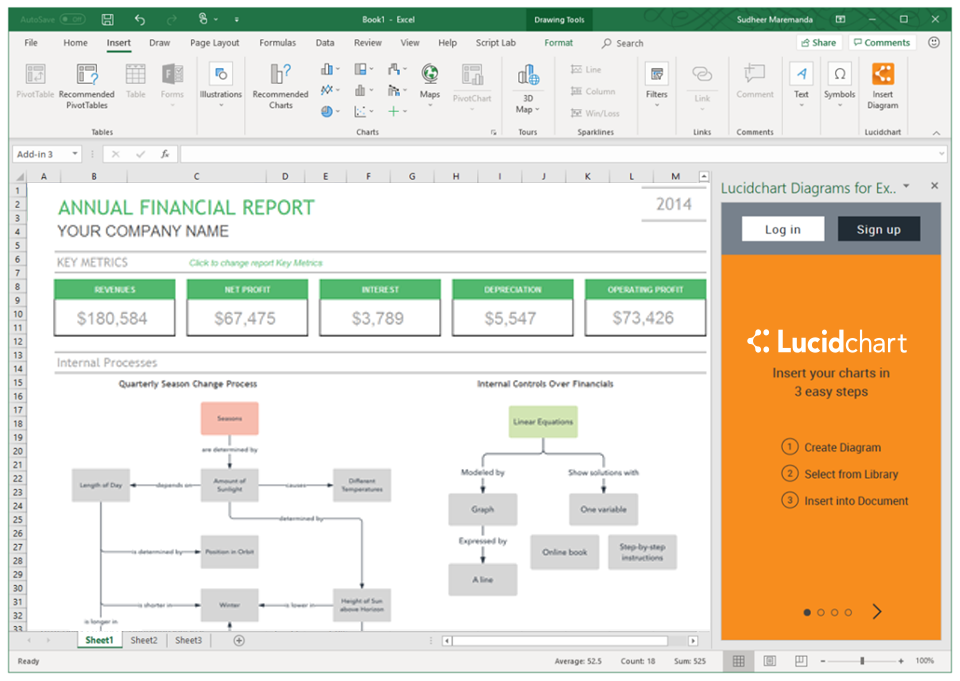
Building hybrid applications with the WebView2 developer preview

Last month at Build, we introduced the new WebView2 coming to Windows, powered by the upcoming Chromium-based Microsoft Edge. Today, we’re releasing a new update to the WebView2 SDK, and with it we’re ready to encourage a broader set of app developers to try the WebView2 preview and give us early feedback.
The WebView 2 preview has a limited scope, with support for an initial set of Win32 C++ APIs on Windows 10. Support for other Windows versions (Windows 7+ and Windows Server 2012 R2+) and UWP/WFP/WinForms support will become available in the future.

Learn more about WebView2 in our session from Build 2019: “Moving the web forward with Microsoft Edge“
With today’s SDK updates, WebView2 addresses a number of popular requests we heard during the initial preview, including supporting 32-bit WebView on 64-bit machines, the ability to disable devtools, the ability to disable status bar, and more. Going forward, our initial plan is to update the SDK roughly every six weeks, with our cadence and roadmap primarily driven by your feedback. You can receive information about new releases via our release notes or via the RSS feed of the WebView2 NuGet package.
About the control
The WebView2 control allows developers to host web content within your native apps. This hybrid approach lets you to share code with similar controls on other platforms or with your websites, to inject dynamic content into your native apps, and to leverage the rich and growing ecosystem of tools, frameworks, and talent around web technologies, among other benefits.
WebView2 can power a wide spectrum of apps and use cases. For example, we’re working closely with the Office team to bring a WebView2-powered Add-ins experience to future versions of apps like Excel, which will allow add-ins to leverage the full-fidelity Chromium engine that powers Microsoft Edge.

Office add-ins such as this one by Lucidchart will be able to leverage the modern capabilities of Microsoft Edge, enabled by WebView2
A consistent foundation for web apps on all Windows devices
By building on the same Chromium-based foundation as the next version of Microsoft Edge, the new WebView2 control is compatible with the latest web platform capabilities and broadly interoperable with the web experiences you have already built. WebView2 is by default powered by the always up-to-date Microsoft Edge, so you can build your web content against the latest and most secure platform without worrying about fragmentation across Windows versions, or across your web content running in the browser and in your app.
For developers that need a fully locked-down web platform, we’re working on a bring-your-own mode, which will allow bundling a redistributable version of the browser with a WebView2 app. The redistributable browser powering WebView2 gets no automatic update; in this case, app developers are responsible for servicing and updating the WebView to receive security updates and new capabilities.
We recognize that many developers have invested in EdgeHTML and MSHTML-based web apps and hybrid apps over time. As we build out WebView2, we expect it to be a compelling successor for these developers, but we hear loud and clear that not every app is ready to move forward. Existing Windows applications built with Windows web technologies, such as EdgeHTML/MSHTML-based WebViews or WWA/HWA/PWA built on top of the UWP platform, will continue to work as-is without modification.
Getting started the preview
We’re early in our journey to provide a modern, robust WebView for Windows devices, and the future direction of WebView2 will be heavily influenced by your feedback. Visit our documentation to learn more about the developer preview, check out the getting-started tutorial, and share your feedback, suggestions, and details on your scenarios over at our feedback repo.
Have fun building!
– Limin Zhu, Program Manager, WebView
The post Building hybrid applications with the WebView2 developer preview appeared first on Windows Blog.
Source: Building hybrid applications with the WebView2 developer preview






Leave a Reply